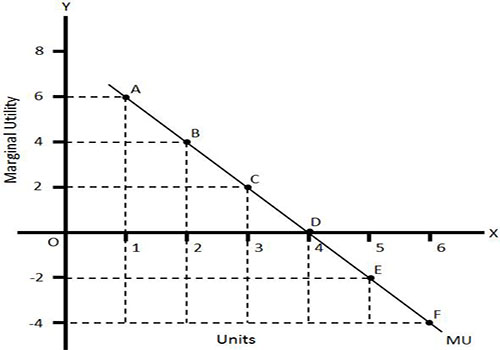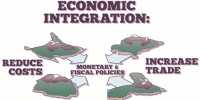Marginal utility is the additional satisfaction a consumer gains from consuming one more unit of a good or service. Marginal utility is an important economic concept because economist uses it to determine how much of an item a consumer will buy. Positive marginal utility is when the consumption of an additional item increase the total utility. Negative marginal utility is when the consumption of an additional item decreases the total utility.

Law of diminish in marginal utility
Utility refers to the amount of satisfaction a person gets from consumption of an certain item. And marginal utility refers to the additional mode to total utility; we get after consuming one more unit.
An individual’s wants are unlimited in number yet each individual’s want is satiable. Because of this, the more we have a commodity, the less we want to have more of it. The law states that as the amount consumed of a commodity increases, the utility derived by the consumer from the additional units, i.e marginal utility goes to on decreasing.
Law of diminishing marginal utility means that the marginal utility obtained from the consumption of additional unit will start to decrease after a certain level of consumption when the amount consumed increases.
The law of diminishing marginal utility explains the downward demand curve.
Definition
According to Marshall, The additional benefit a person deprives from a given increase of his stock of a thing diminishes with every increase in the stock that he already has.
Assumption:
All the units of a commodity must be same in all respects.
The unit of the good must be standard.
There should be no change in taste during the process of consumption. There must be continuity in consumption.
There should be no change in the price of the substitute goods.













